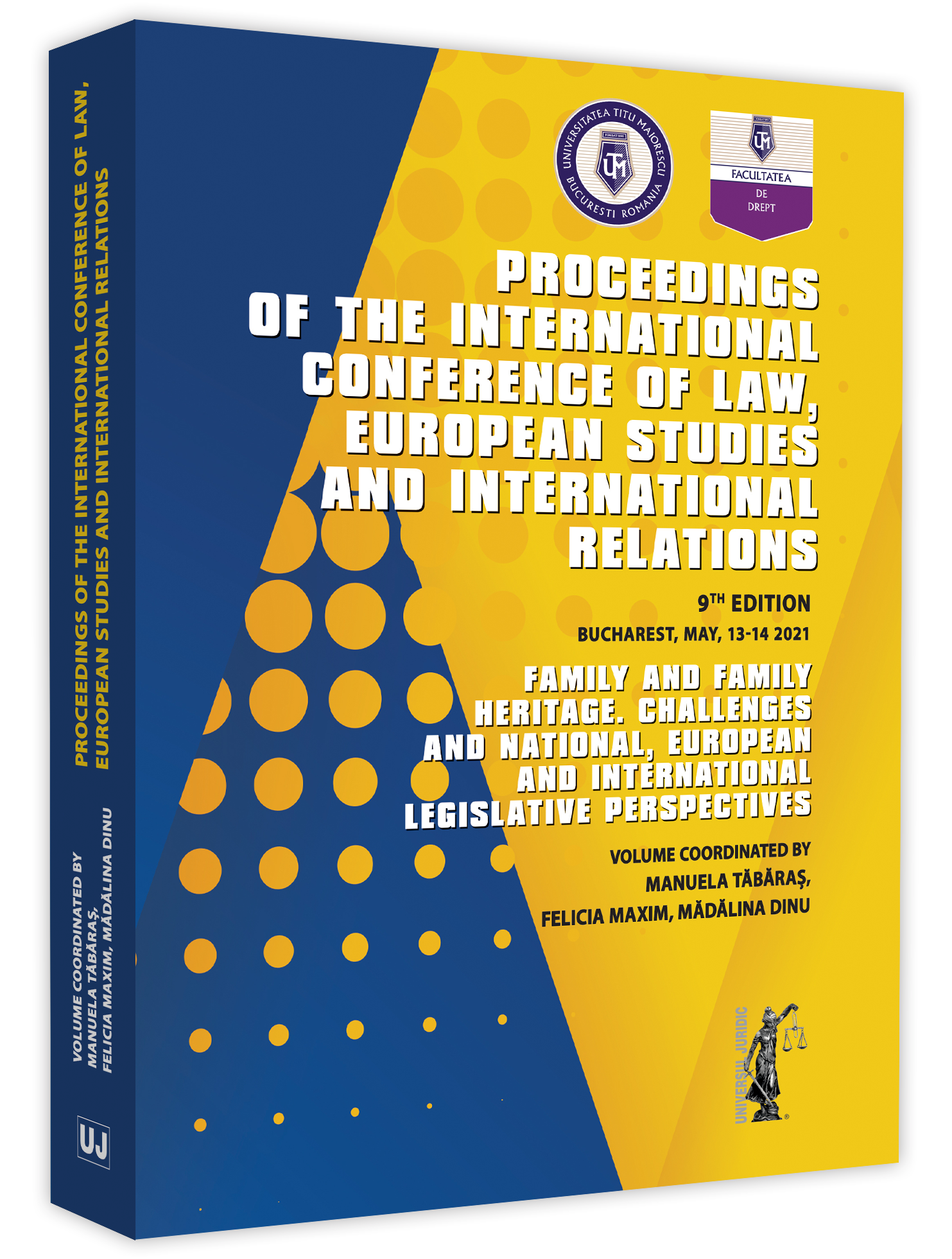
INTEGRATING CHILDREN'S RIGHTS INTO FAMILY RELATIONSHIPS: INTERNATIONAL AND REGIONAL LEGAL PERSPECTIVES
INTEGRATING CHILDREN'S RIGHTS INTO FAMILY RELATIONSHIPS: INTERNATIONAL AND REGIONAL LEGAL PERSPECTIVES
Keywords: children's rights; family environment; best interests of the child; right to privacy and family;
The rights of the child are, for the science of human rights, aspects of major interest that problematize the vulnerability of a social category that is distinguished by insufficient physical and mental development. Given these bio psycho coordinates social values of the child, his quality of rights holder should be understood in the context of the relationship with the family the element able to provide support for the improvement of the human model that the child poses in his development. Accepting these research theses, this paper advances as a scientific objective the analysis of the way in which, under the auspices of the most relevant international / regional legal instruments, two interrelated legal categories interact: children's rights and the family environment. From the observation of the models of correlation of the two legal categories in the international and regional systems of protection of children's rights derive particular models of capitalization of children's rights in society.
More...